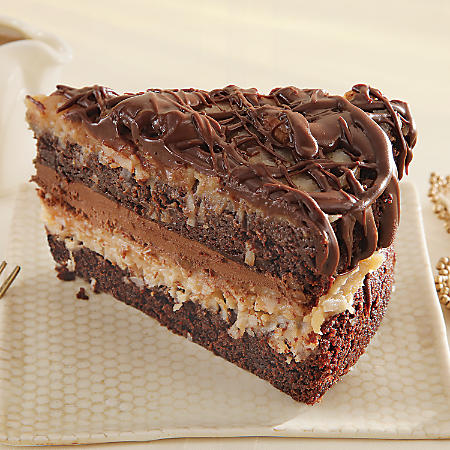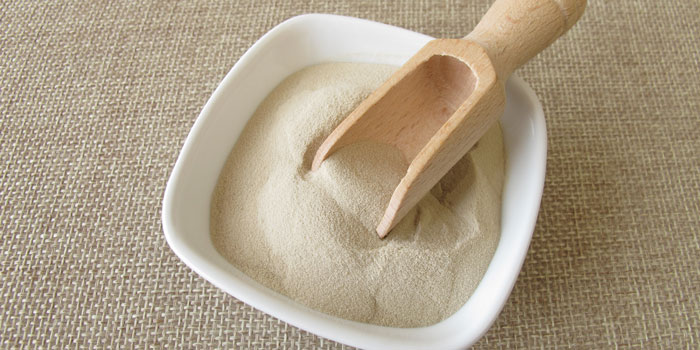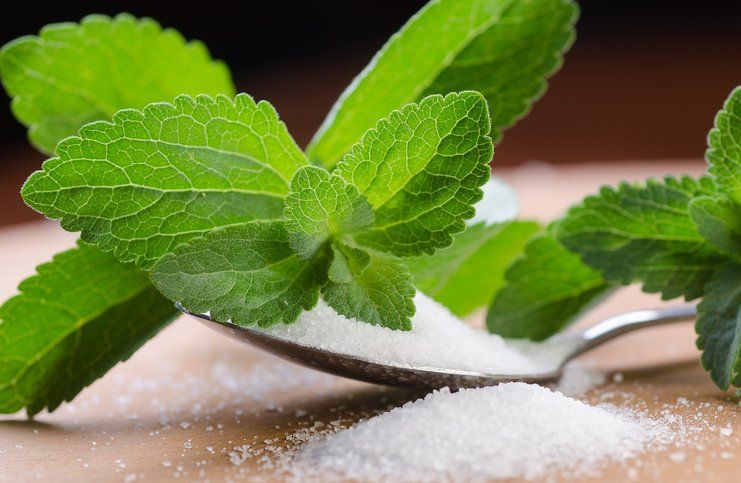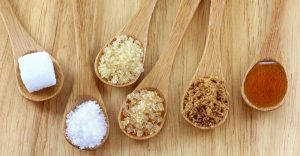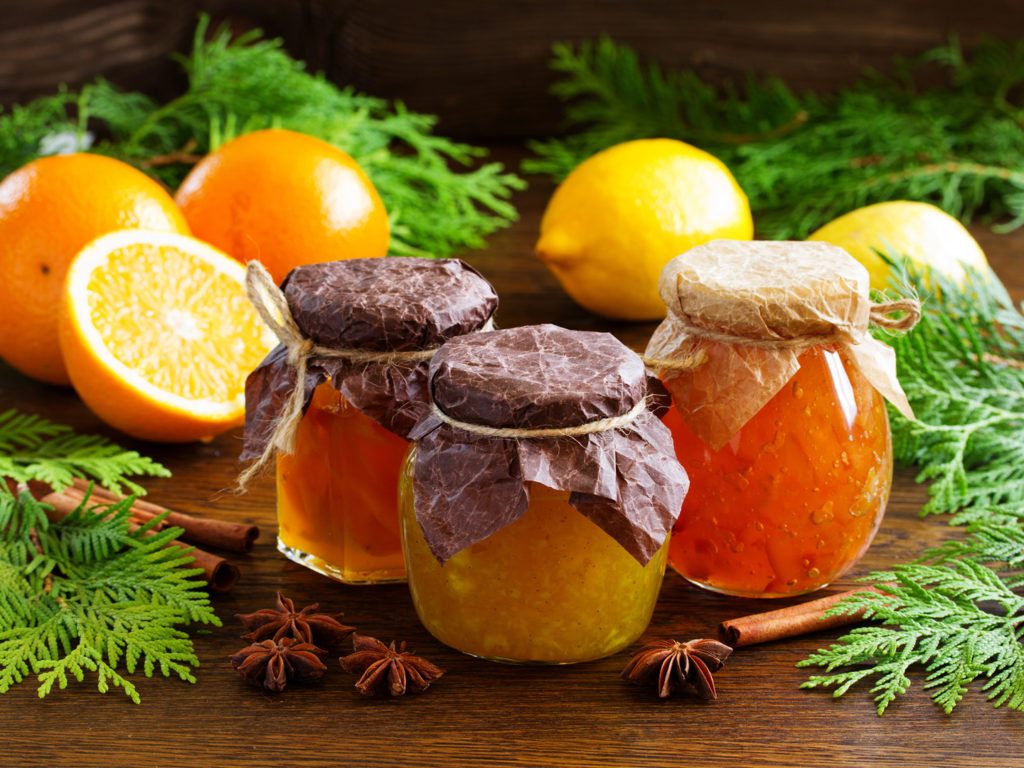What is Potassium sorbate E202?
Potassium sorbate E202 is the potassium salt of sorbic acid, chemical formula CH3CH=CH−CH=CH−CO2K, a white crystalline powder or granular or pellets.
Potassium sorbate is a FDA approved preservative used in food to extend the shelf life of food, it is also effective in other uses such as in wine and personal care products.
E number: E202
Common name of Potassium Sorbate: food additive 202, preservative e202, food preservative 202, k sorbate
Molecular formula: C6H7KO2
CAS Number: 24634-61-5
Molecular weight: 150.22 g·mol−1
Manufacturing process: Potassium sorbate E202 is manufactured by sorbic acid and either potassium carbonate or potassium hydroxide.
What is Sorbate?
Calcium sorbate, Sodium sorbate and Potassium sorbate are in the category of sorbates. Potassium sorbate E202 are widely used compared with other two sorbates in food. If you see potassium sorbate in food ingredient list, it is used to extend the shelf life. this preservative is labelled as “potassium sorbate” or E202 on the ingredient statement. You’ll find sorbates in food such as baking food, wine, yogurt, beer, Cheese, margarines and also in cosmetics such like skin care products and shampoo.
Potassium sorbate E202 Function
The main function of Potassium sorbate E202 is to inhibit the growth of mold, yeast, and microbes, in turn increasing shelf life of food products.
Potassium sorbate E202 can effectively inhibit the activity of mold, yeast and aerobic bacteria which can be found in foods, such as cheese, wine, yogurt, dried meats, soft drinks & fruit drinks, canned fruits and vegetables and baked food, but can also prevent the growth and reproduction of harmful microorganisms such as Botox, Staphylococcus and Salmonella.
However, Potassium sorbate E202 is almost ineffective to the anaerobic Bacillus and acidophilic Lactobacillus and other beneficial microorganisms. The inhibition of development is stronger than the bactericidal effect, so can effectively extend the shelf life of food, and maintain the flavor of the original food. The preservative effect 5-10 times to another food preservative Sodium Benzoate. Some food manufacturers use Potassium sorbate E202 to replace Sodium Benzoate or Parabens.
Properties
Potassium sorbate E202 solubility
Solubility in water 58.5 g/100 mL (100 °C), Soluble in ethanol, propylene glycol; Slightly soluble in acetone; Very slightly soluble in chloroform, corn oil, ether; Insoluble in benzene.
Potassium sorbate E202 PH
Potassium sorbate E202 forms sorbate when dissolved in water and is the most widely used food grade preservative. It is effective up to pH 6.5, but is more effective as the pH decreases and becomes more acidic. It is used in the food industry from 0.025 to 0.10%. Can be used to increase the pH in formulations. If potassium sorbate is used as a preservative, the pH of the finished product may need to be reduced for potassium sorbate to be effective.
Potassium sorbate is not a broad spectrum preservative for food use. Food products better undergo microbial testing to ensure the efficacy of any preservative system.
How to choose suitable food preservatives according to PH
Choosing the right preservative to use in food might be the important decision during food process. The three most common food preservatives are:
- Sorbates
- Propionates
- Benzoates
Choosing which preservative to use is highly dependent on the pH of finished products.
In general, the effective upper pH limit is about;
- pH 6.5 for Sorbates
- pH 5.5 for Propionates
- pH 4.5 for Benzoates
(Acidulants such as Citric Acid, Fumaric Acid, Malic Acid, Tartaric Acid, etc can be added to lower the pH level to make the mold inhibitors more effective)
Sorbates PH
Sorbates are the more effective preservative against a wider spectrum of food spoilage microorganisms than benzoates or propionates When used at common pH levels of mildly acidic foods (pH 5.5 – 6.0).
Sorbates’ effectiveness increases with greater acidity (lower pH). Above pH 4.0, sorbates are more effective than sodium benzoate or sodium/calcium propionate.
At pH 2.5 – 3.0, sorbates are still somewhat more effective than sodium benzoate as a yeast and mold inhibitor, and more than twice as potent as propionates.
Sorbates are at their optimum effectiveness when used below pH 6.0. However they can function up to pH 6.5, but are relatively ineffective at pH 7.0 and above.
Potassium sorbate E202 halal
Yes it is halal certificated and we can supply halal potassium sorbate powder & granular USP/FCC.
Potassium sorbate E202 Kosher
Yes it is kosher certificated and we can supply kosher potassium sorbate powder & granular USP/FCC.
Potassium sorbate E202 nutritional information
| Potassium Sorbate E202 has the following nutritional values: Based on 100 g | Potassium Sorbate |
| Energy value
(kcal) (KJ) |
246*
1030* |
| Total Carbohydrates (g)
· Dietary fiber · Sugars/Added Sugars |
0
0 0 |
| Fat (g) | 0 |
| Cholesterol (mg) | 0 |
| Protein (g) | 0 |
| Sodium (g) | 0 |
| Potassium (g) | 26 |
| Calcium (g) | 0 |
| Iron (g) | 0 |
| Vitamin D (g) | 0 |
Potassium Sorbate E202 Use & Application
What is Potassium sorbate E202 used for
Potassium sorbate E202 is slightly acidic property prohibits the growth of microbes such as bacteria, fungi, mold, and prolongs the shelf life of foods and cosmetics. Common uses include:
- As a wine preservative. Potassium sorbate is commonly added to wine during the fermentation process to prevent it from spoiling, for retaining the flavor of the wine, and to protect it from yeast and mold growth.
- As a preservative in personal care and cosmetic products. Shampoos, conditioners, liquid foundations, and liquid concealers often contain potassium sorbate to help preserve the products from breaking down.
- As a food preservative. Potassium sorbate is used to prevent mold, bacteria and fungi growth in cheese, fruit, baked goods, dried meat products, soft drinks & fruit drinks and jellies. It is found mostly in food products that are stored at room temperature. In addition, herbal dietary supplement products generally contain potassium sorbate, which acts to prevent mold and microbes and to increase shelf life.
How much Potassium sorbate E202 to use in food
One of the most common questions we are asked by the customers is about how much Potassium sorbate to use in food.
Please see below Potassium sorbate E202 use level per kilogram in food:
| Food | use level |
| Meat / Fish / Eggs / Poultry products | 0.075g |
| Fruit / Fresh Vegetables / Carbonated Beverages | 0.2g |
| Collagen casings / Low-salt Pickles / Jiang class / Preserves / Fruit juice (Flavoured) drinks / Jelly | 0.5g |
| Food industry plastic bottled juice concentrate | 2.0g |
| Soy sauce / Vinegar / Jam / Hydrogenated vegetable oil / Candy / Dried goods / Instant soy foods / Pastries / Stuffing / Bread / Cake / Moon cake / Instant jellyfish / Lactic acid bacteria drinks | 1.0g |
| Fruit juice (fruit) ice / Milk drinks | 0.5g |
| Pre-cocktail | 0.2g |
| Meat enema | 1.5g |
| Complex seasoning / Flavouring syrups / Liquid compound seasoning / Instant dried | 1.0g |
How to use Potassium sorbate E202 in food production
Dilute Potassium sorbate E202 before put in the production tank or put it to the tank.
Potassium sorbate E202 is used widely in soft drinks & fruit drinks as a preservative, we’ll not introduce the use in this fields, here we’ll introduce the use in wine, cake and baking food.
Potassium sorbate E202 in wine
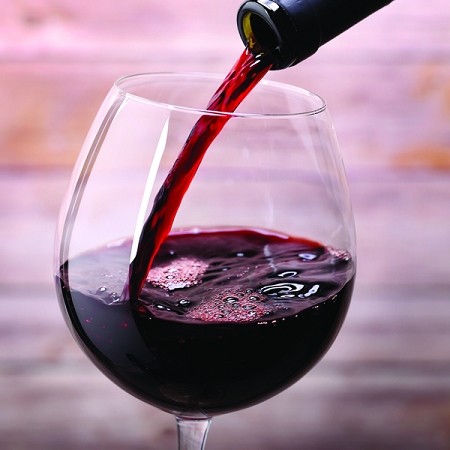
Potassium sorbate also known as “wine stabilizer”, is added to a finished wine before bottling to reduce the possibility of re-fermentation. Potassium sorbate E202 is a yeast growth inhibitor; it will not stop a fermentation that is in progress but it will stop a fermentation from re-starting.
What potassium sorbate do in wine is keep wine yeast from increasing in numbers. It stops the wine yeast from reproducing itself into a larger colony. As an example, if you add potassium sorbate E202 to an active fermentation you will see the fermentation become slower and slower, day after day. This is because some of the wine yeast is beginning to naturally die off and new cells are not being produced to take their place. Eventually the yeast colony will either run out of sugars to ferment, or they will all die off from old age.
If you add sugar to a finished wine to sweeten it, and the wine is still laden with residual wine yeast, it does not matter if you add potassium sorbate or not. The wine yeast will ferment in either case. The only difference the potassium sorbate will make is whether the fermentation is going to become a full-blown one or just sputter along, almost unnoticeable, until the aging yeast cells can do no more.
Potassium sorbate E202 in cakes
Where the microbial shelf-life of cake products is insufficient it is common practice to add a suitable mold inhibitor to add to the effect of product water activity. Commonly used mold inhibitors are sorbic acid and its salts (e.g., potassium sorbate). Levels of addition will vary according to the shelf-life requirements, with upper limits being controlled by legislation. In practice, high levels of addition will lead to changes in product flavor which may make the product unacceptable to consumers.
Potassium sorbate E202 in baking

Potassium sorbate E202 is used in baking to inhibit the growth of mold, yeast, and microbes.
Because of the effect of potassium sorbate on yeast cells, the food preservative is not suitable for bread baking. Because of a possible adverse effect on yeast activity in fermented products, sorbates may be applied as a spray of a dilute aqueous solution to the baked product as it emerges from the oven. The heat of the product evaporates the water from the spray, leaving a residue of preservative on the surface where most post-baking contamination is likely to occur.
Potassium sorbate E202 in cosmetics
Potassium Sorbate E202 kill microorganisms, or prevent or retard their growth and reproduction, and thus protect cosmetics and personal care products from spoilage.
Potassium sorbate E202 market
Market trend
Potassium sorbate E202 a salt of sorbic acid and has wide application & use in food and personal care products as a preservative. Market Demand of potassium sorbate is increasing in food especially in processed food. In terms of its functionality it is used as a preservative against molds, yeast and many bacteria. Growth of mycotoxin-forming molds is also inhibited. The potassium sorbate is extensively used in food products as a preservative and it is easily available and cost effective. Potassium sorbate was initially tagged as safe for consumption.
The manufacturers of milk extracted products such as yogurt, cheese are widely using this chemical to extend its shelf life.
Apart from processed dairy products, potassium sorbates E202 are extensively used in processed fruits and vegetables and wines. As the processed food industry is likely to expedite in the forthcoming years, so it will surely impact the development of the global potassium sorbate market. The developing economies of the globe holds the key to the growth of the processed fruits and vegetables industry.
Market Dynamics of Potassium Sorbate Market
Increasing demand of processed food is one of the major driver behind the rising demand of potassium sorbate in global market.
Market Segmentation of Potassium Sorbate Market
Potassium sorbate market is segmented on two different basis which includes types and application. As per the types it includes granular and powder. Among these segments, granular segment contributes the largest market share. Market segment on the basis of application includes food & beverages, pharmaceutical products, personal care and industrial usage. Further the food & beverage segment is sub-segmented into bakery, dairy products, canned foods carbonated beverages, non-carbonated beverages & powdered mixes. Major demand of potassium sorbate is from the side of food processing industry followed by pharmaceutical and cosmetic sector.
On analyzing the demand of potassium sorbate, it is observed that highest percentage of its application is in canned fruit and vegetable products, canned meat, desserts and from dairy sector which includes products like cheese, ice-cream, yogurt etc. Results of pie chart show that majority of share in market of potassium is from food & beverage industry. It is due to increasing demand of processed food products among growing population in emerging economies of world. On the other side, potassium sorbate is also gaining demand in wine industry where it is used in fermentation process and it also used as a stabilizer in beverage industry to prevent the drinks from secondary fermentation and reinfection. Similar in personal care products it is used in shampoo, lotion, cream etc. It is also used in industrial coatings to prevent the industrial products from fungus, yeast, mold etc.
Regional Outlook of Potassium Sorbate
On the basis of geographical market segment, it is segmented into seven different regions: North America, Latin America, Eastern Europe, Western Europe, and Asia-Pacific region, Japan and Middle East and Africa. Asia-Pacific region is expected to be lucrative market. China is expected to account for major share in terms of volume contribution. On the other side in terms of consumption, U.S. is expected to be the largest consumer of potassium sorbate in the world followed by European region.
Potassium sorbate E202 manufacturers
China is the biggest Potassium sorbate E202 manufacturers and export country in the world. The production capacity of sorbic acid E200 and Potassium sorbate E202 in China reaches 165.5 thousand tonnes in 2016. Ningbo Wanglong, Jinneng, Nantong Acetic Acid are the top 3 manufacturers in China, which take up 82.9% of Chinese sorbic acid and potassium sorbate production.
There are several Potassium Sorbate manufacturers in China and abroad, as you know, the price of China Potassium Sorbate suppliers can be better than abroad manufacturers. We have worked with China top Potassium Sorbate manufacturer for years, we would like to recommend this Potassium Sorbate brand to you if you would like to save your purchasing cost with the same Potassium Sorbate quality compared with abroad Potassium Sorbate manufacturers. Potassium Sorbate Samples are available if you need it for further test after accept the price.
Potassium sorbate E202 price
There are main two types of potassium sorbate in the market: granular and power. Now the price of Potassium Sorbate is around USD/kg from China Potassium Sorbate manufacturers and suppliers.
Where to buy Potassium sorbate E202
All the products listed in our website are from the manufacturers we have worked together for many years. The professional working experience backup our confidence to their quality. We can supply Potassium Sorbate USP/FCC for many years and we can be your Potassium Sorbate USP/FCC suppliers in China. If you would like to buy Potassium Sorbate USP/FCC or inquiry price, please e-mail us through: info@foodsweeteners.com
Potassium sorbate powder Specification
reference: https://www.foodsweeteners.com/wp-content/uploads/2018/02/POTASSIUM-SORBATE-POWDER-Specification.pdf
Potassium sorbate granular Specification
Potassium sorbate E202 Safety
In 2015, the EFSA reviewed potassium sorbate and two other food additives. It set a temporary acceptable daily intake of 3 mg per kg of body weight per day. This limit is in response to questions about reproductive and developmental toxicity from animal research. Rats were fed 300 mg per day with no observed bad effects. For added safety, the EFSO set a standard that was 100 times lower.
The maximum acceptable daily intake for humans is 25 milligrams per kilogram (mg per kg) of body weight per day. For an adult of 150 pounds, this comes to 1,750 mg per day.
Source: https://www.healthline.com/health/potassium-sorbate#safety
Potassium sorbate E202 MSDS
Source: https://www.foodsweeteners.com/potassium-sorbate-msds/
Potassium Sorbate E202 side effects
Although the safety of potassium sorbate is recognized by FDA and EFSA, there is still some controversy about its dangers and health side effects.
For example, using skin creams or other beauty products with potassium sorbate can cause skin irritation, redness, rashes, burning or watery eyes, and other reactions. This is more common in people with potassium allergies, although using an excessive amount of beauty products could lead to some of these reactions.
However, it is potassium sorbate in food that poses more of a problem. Potassium sorbate dangers can be significant and have a damaging effect on our health. Eating too much potassium sorbate preservative over a long period of time could lead to symptoms such as nausea, vomiting, upset stomach, and diarrhea.
Potassium sorbate E202 allergy
may cause an allergic or intolerance reaction, especially intake large amounts can potentially lead to allergies. Allergic symptoms such as itching of the mouth, throat, eyes, skin as well as nasal congestion, runny nose and abdominal pain.
Is potassium sorbate E202 safe for babies and pregnant?
Potassium sorbate is so common in foods and other products that it seems impossible to completely avoid it. Although it is recognized safe by FDA and EFSA, babies and pregnant women better do not eat the food with Potassium sorbate in case of any allergy or side effects.
Is potassium sorbate E202 safe for dogs and cats?
Potassium sorbate is also approved for safe use as a preservative in moist cat and dog foods and in other animal feed.
Potassium sorbate E202 FAQ
Potassium sorbate alternative
Some customers are wondering if there was an alternative to using potassium sorbate? The alternative such as TBHQ, BHA, BHT, Sodium Benzoate, Nisin, Natamycin, Epsilon Poly L Lysine and so on.
Calcium sorbate preservative
Calcium sorbate E200 is another form of sorbates. It is used mainly in dairy products. The use in food in less compared with potassium sorbate.
How does Potassium sorbate E202 work as a preservative
Potassium sorbate is an acidic preservative, which has high antibacterial properties and can inhibit the growth and reproduction of molds. It mainly inhibits the microorganisms growth and work as a preservative by inhibiting the dehydrogenase system in microorganisms. It can inhibite bacteria, mold and yeast.
Is potassium sorbate E202 vegan?
Yes, it is vegan.
Is potassium sorbate E202 a sulfite?
No, it is not a sulfite, it is a sorbate.
Sorbic Acid E200 vs Potassium sorbate E202
Sorbic acid is not soluble in water, it is not commonly used as it must first be dissolved in ethanol or potassium hydrogen sulfate. That’s one reason Potassium sorbate E202 used widely than Sorbic Acid E200.
Sorbic acid E200 and Potassium sorbate solubility in water comparision
| Solvent | Sorbic Acid (%Solubility) | Potassium Sorbate (% Solubility ) |
| Water | ||
| 20ºC (68ºF) | 0.16 | 58.20 |
| 50°C (112°F) | 0.55 | 61.00 |
| 100°C (212°F) | 4.00 | 64.00 |
Sodium Benzoate E211 vs Potassium sorbate E202
- Preserve Effect: Potassium sorbate preservative effect is 5-10 times to another food preservative Sodium Benzoate.
- Price: Sodium Benzoate price is lower much than Potassium sorbate.
- Side effects: It is assumed that Sodium benzoate has much side effects than Potassium sorbate. Potassium sorbate toxicity only 1/12 times table salts and 1/40 times sodium benzoate.
Potassium sorbate E202 vs Potassium metabisulfite E224
Potassium sorbate is also referred to just as sorbate. Potassium metabisulphite is called k-meta, sulfite. Sulfite and Sorbate should be added together as they are stronger together then individually in wine making.
Is potassium sorbate E202 a natural preservative?
Potassium sorbate E202 is not a natural preservative, it is a salt of sorbic acid that is chemical synthesized, manufactured by potassium carbonate or potassium hydroxide with sorbic acid.

